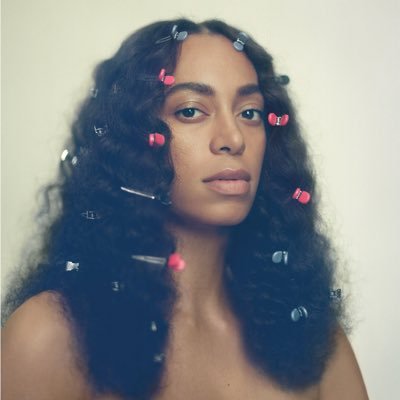|
DINU KUMARASINGHE Volume 10, Issue 11 So this has nothing to do with law school. The story has a barista in it, and I guess there’s a (bad) joke there about none of us getting jobs blah blah so you go in wanting to be a barrister leave being a barista LOL lol lmfao rofl, or whatever. But anyway, the point of this preface is to tell you this article doesn’t really have anything to do with law.
My favourite song on the album at the moment is ‘Mad’. It features a pretty poignant verse by Lil Wayne. Here it is: Yeah, but I, got a lot to be mad about Got a lot to be a man about Got a lot to pop a xan about I used to rock hand-me-downs, and now I rock standing crowds But it's hard when you only Got fans around and no fam around And if they are, then their hands is out And they pointing fingers When I wear this fucking burden on my back like a motherfucking cap and gown Then I walk up in the bank, pants sagging down And I laugh at frowns, what they mad about? Cause here come this motherfucker with this mass account That didn't wear cap and gown Are you mad 'cause the judge ain't give me more time? And when I attempted suicide, I didn't die I remember how mad I was on that day Man, you gotta let it go before it get up in the way Let it go, let it go Weezy uses the word ‘fuck’ three times, but it passes pretty unexceptionally; there’s much more to latch on to in the verse. And yet, when we got to his verse today, it played for about three lines before the barista chose to skip to its end. To the barista’s credit, the skip was deftly executed. Anyone who hadn’t spent their week worshipping the album may not even have noticed. But the second or so of silence was enough for a tight ball of unease to form at the pit of my stomach. And I get it—café music has to be relatively inoffensive, nothing too profane. But I don’t think Lil Wayne’s swearing prompted the skip. Rap doesn’t fit the café’s aesthetic. It’s not this café in particular; a lot of people don’t like rap music and cafés often attract a wide demographic. (Patrons don’t take too kindly to experimental jazz either, as it turns out.) But rap is an important product of African American culture, which is in turn an integral part of Solange’s album. Songs like ‘Don’t Touch My Hair’ and ‘F.U.B.U.’ firmly situate the album as an assertion of Black America, of its cultural power. So is there something wrong in skipping the rap verse, to go straight to Solange’s undeniably beautiful vocals? The second or so of silence was enough for me to think ‘you’ve missed the whole point.’ It’s not the specific fault of the person changing the music. I know from the conversation between the barista and waitress (on which I unashamedly eavesdropped) that he understands the importance of the album’s politics. But that skip said a lot about what we are willing to listen to and celebrate. Can we celebrate Solange and Frank Ocean in public if we only broadcast their aesthetically amenable offerings? Do we have an obligation to include the parts of their art that challenge us? More importantly, do we have an obligation to include the politics that challenge us? Can you listen to Nina Simone ‘Feeling Good’ if you don’t follow it with ‘Strange Fruit’ and allow yourself to feel bad? History is littered with dominant cultures appropriating minority cultures. We’re at a point now that some within those minorities are powerful and loud enough to release albums like A Seat at the Table. Beyoncé can stand on a sinking police car. Frank Ocean can remind us that he’s not so different to Trayvon Martin. And those voices sound bloody good when they do it. So it is completely understandable that we want to listen to their art. That we enjoy their art. There is a problem, however, when we only listen to the elements of their art that don’t challenge us. That don’t challenge how we constitute our public spaces. Yes, those artists are talented. That’s why the world went nuts over Frank’s new album, and that’s why the world is going nuts about Solange. But if we’re going to so gleefully consume their talent, we have to also consume their critique. I said at the beginning this has nothing to do with law. But maybe whom we listen to, and how we choose to listen to them when we finally give them our time, has everything to do with law. Dinu Kumarasinghe is a second-year JD student The rest of this week’s issue of De Minimis:
Hilary de G
12/10/2016 04:29:29 pm
This, this is the kind of article I'd like to see published on De Minimis more often (a step sideways from the pseudopolitical speechifying on relative non-issues).
Tim MS
13/10/2016 10:07:39 pm
Hilary! If you don't like the standard pseudopolitical speechifying on relative non-issues then please do write something yourself. If it's not defamatory or grossly offensive, DM will publish it! Comments are closed.
|
Archives
October 2022
|



